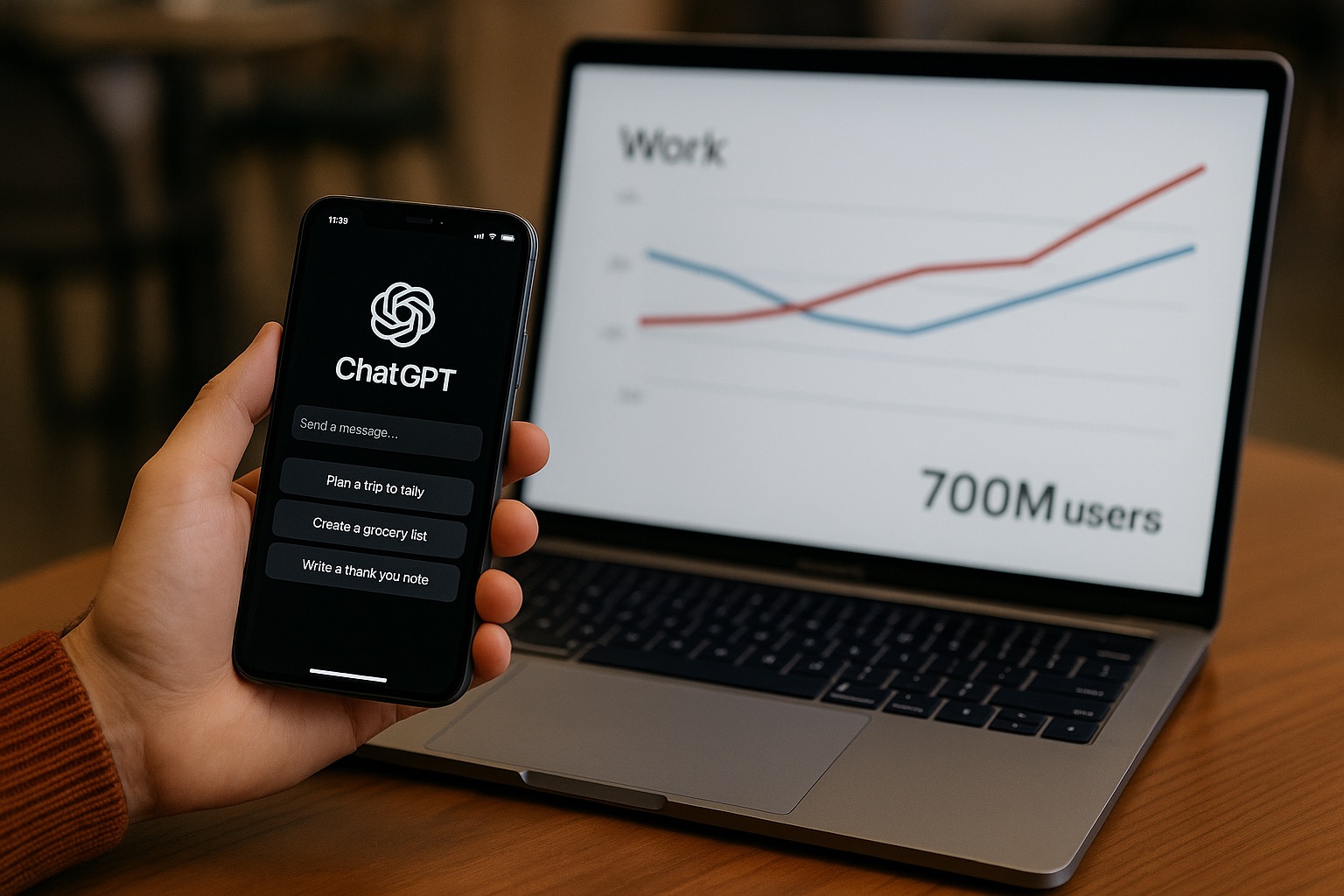ChatGPT just pulled off something unexpected. What started as the ultimate productivity hack for busy professionals has quietly transformed into something much more personal. A comprehensive study from OpenAI reveals that over 70% of the 2.5 billion daily ChatGPT messages now focus on personal life rather than work tasks. That’s roughly 29,000 messages per second, and most of them aren’t about writing memos or responding to emails.
This shift tells a fascinating story about how we actually integrate artificial intelligence into our daily lives versus how tech companies originally imagined we would. When ChatGPT launched in November 2022, OpenAI positioned it as the solution to workplace drudgery. Fast-forward to 2025, and people are using it more like a knowledgeable friend who happens to be available 24/7 for everything from hobby advice to relationship guidance.
The implications extend far beyond simple usage statistics. This transformation suggests that AI’s real value might lie not in replacing human work, but in enhancing human curiosity and personal growth.
The Great Usage Shift: From Workplace Tool to Personal Companion
The numbers tell a compelling story. In mid-2024, nearly half of all ChatGPT conversations involved job-related queries. By mid-2025, that figure dropped to just over 25%. This isn’t because people abandoned the platform—quite the opposite happened.
ChatGPT’s user base exploded to approximately 700 million weekly active users worldwide, generating more than 2.5 billion messages daily. The platform succeeded by evolving beyond its original corporate positioning into something more intimate and personally relevant.
Key usage pattern changes:
- Writing assistance dropped from over 33% to around 25% of total usage
- Information seeking jumped from 14% to 24% of conversations
- Personal queries increasingly dominate daily interactions
- Task-based requests gave way to question-and-answer sessions
Think of it like having a Swiss Army knife that people initially bought for camping but ended up using primarily for household tasks. The tool remained the same, but user behavior revealed different priorities and needs.
Demographics Drive the Personal Usage Revolution
Gender balance transformation: Early ChatGPT adoption skewed heavily male, with only 37% of users having typically feminine names in January 2024. By July 2025, that demographic reached 52%, indicating women now use the platform at equal or slightly higher rates than men.
This gender shift correlates strongly with increased personal usage patterns. Women users tend to engage ChatGPT for advice-seeking, relationship guidance, and creative personal projects rather than strictly professional tasks.
Age demographics reveal fascinating patterns: Nearly half (46%) of ChatGPT users fall between ages 18-25, and this younger demographic drives the personal usage trend. Younger users gravitate toward hobby discussions, life advice, and creative exploration, while older users maintain higher rates of work-related interactions.
Geographic expansion beyond wealthy nations: The fastest ChatGPT growth now occurs in lower-to-middle-income countries where GDP per capita ranges from $10,000 to $40,000. Smartphone-first internet access in these regions naturally leads to more casual, personal AI interactions compared to desktop-based professional usage patterns.
Education and Occupation: The Work Usage Holdouts
Educational background strongly influences usage patterns. Users with college degrees show higher work-related usage rates, creating clear segments based on educational attainment:
- Less than bachelor’s degree: 37% work-related messages
- Bachelor’s degree holders: 46% work-related messages
- Graduate education: 48% work-related messages
This education correlation makes intuitive sense. People with advanced degrees often work in knowledge-based professions where AI assistance provides clear productivity benefits. Meanwhile, users without formal higher education find value in ChatGPT’s accessibility for everyday questions and personal support.
Professional occupation patterns: Highly paid professional and technical workers maintain the strongest work-related usage rates. Software developers, consultants, researchers, and similar roles leverage ChatGPT for specific professional tasks, while service workers, students, and retirees engage more casually.
Search Engine Replacement: ChatGPT as Information Discovery Tool
The shift toward information seeking represents perhaps the most significant change in ChatGPT usage patterns. People increasingly treat the platform like an enhanced search engine that provides conversational, contextual responses rather than link lists.
Why ChatGPT beats traditional search for many queries:
- Immediate, digestible answers without clicking through multiple sources
- Conversational follow-up questions and clarification
- Personalized explanations based on user’s apparent knowledge level
- No advertisement interruptions or sponsored content confusion
This search replacement behavior explains why personal usage dominates. People naturally ask more personal questions than work questions throughout their daily lives. “How do I fix this relationship issue?” feels more comfortable to ask an AI than a human, while “What’s the weather like?” represents the kind of quick information need that ChatGPT handles effortlessly.
Economic Implications: Welfare Gains Beyond Workplace Productivity
The OpenAI study notes that “welfare gains from generative AI usage could be substantial” specifically because non-work usage increases faster than professional applications. This observation challenges traditional economic thinking about AI value creation.
Personal usage creates value through:
- Reduced time searching for information across multiple sources
- Accessible expert-level guidance on personal decisions
- Creative inspiration and hobby development support
- Emotional support and perspective during difficult situations
- Educational opportunities outside formal learning environments
The research suggests that AI’s greatest economic impact might come through improving quality of life and personal satisfaction rather than pure workplace efficiency gains. A more informed, creative, and supported population generates broader economic benefits that extend beyond measurable productivity metrics.
This perspective reframes ChatGPT’s evolution from productivity tool to personal companion as a feature, not a bug, of successful AI integration into human society.




Post a comment